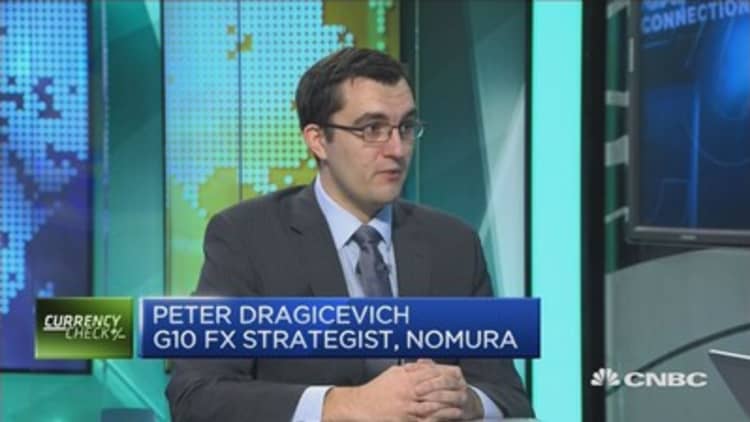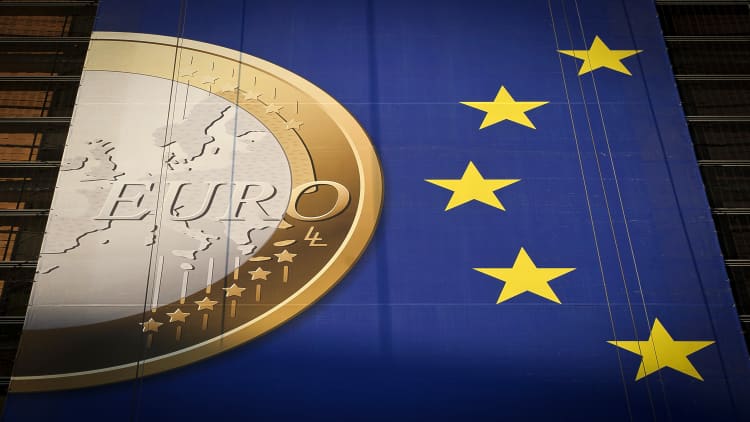The euro hit a six-month high on Tuesday morning as political risks shifted away from Europe, but analysts remained skeptical on whether the move was part of a longer trend upwards for the single currency.
The euro traded at $1.1049 in late morning trade in Europe, the highest level since November 7. "The latest move still reflects the relief of financial markets after the French elections," Carsten Brzeski, chief economist at ING Germany told CNBC via email.
The euro rose substantially in the aftermath of the first round of the French presidential vote and then edged upwards again after the runoff vote two weeks' later. The currency had lost some ground since then, but recently rebounded.
"With political risks fading away, the macro story is surfacing. And it is a positive story. Just confirmed by strong gross domestic product data in the first quarter. (I) think that markets are gradually realizing that the euro zone economy could be the big positive surprise of the global economy this year," Brzeski said.

On Tuesday morning, the European statistics office confirmed that quarterly euro zone GDP grew by 0.5 percent in the three months to March. Annual growth came in at 1.7 percent.
Jane Foley, forex strategist at Rabobank, also mentioned the fading of political risks in Europe as being supportive for the euro.
"(President) Macron's choice of a Republican prime minister will have boosted his chances of a parliamentary majority next month. The common ground between him and (Chancellor Angela) Merkel as noted in Monday's meeting and the chancellor's election success in regional elections at the weekend are all EUR positive factors," she told CNBC.
"Indeed, the better political backdrop in Europe is in contrast to the latest scandal involving (President Donald) Trump and Russia," Foley added.
Apart from the more positive political and macro economic story in Europe, rising political concerns in the U.S. have sent the dollar lower. Reports on Monday evening claimed that Trump had revealed classified information to Russian officials.
"The latest strengthening of the euro is mainly a euro-dollar story. Since early April, the bilateral exchange rate appreciated by some 4 percent, while the nominal effective exchange rate only increased by a good 1 percent," Brzeski noted.
Where will the euro go from now?

There are two key institutions that will affect euro-dollar moves: the European Central Bank and the U.S. Federal Reserve.
Foley from Rabobank noted that the euro will likely need a "fresh incentive" if it is to re-embark on its upward move against the dollar. This could come in the form of words from ECB President Mario Draghi, but he "appears reluctant to provide too much encouragement to EUR bulls," she said.
As a result, Foley sees EUR/USD trading around 1.08 and 1.10 in the coming months. Brzeski from ING seemed more confident on a potential ECB move to tighten monetary policy.
"Against the positive macro background and fading political risks, the ECB will finally be able to move towards tapering. This should lead to a further strengthening of the euro. Although not a substantial one. We expect the euro to end the year at around 1.15," Brzeski said.
Furthermore, the Fed is expected to keep raising rates throughout this year, which would strengthen the dollar.


